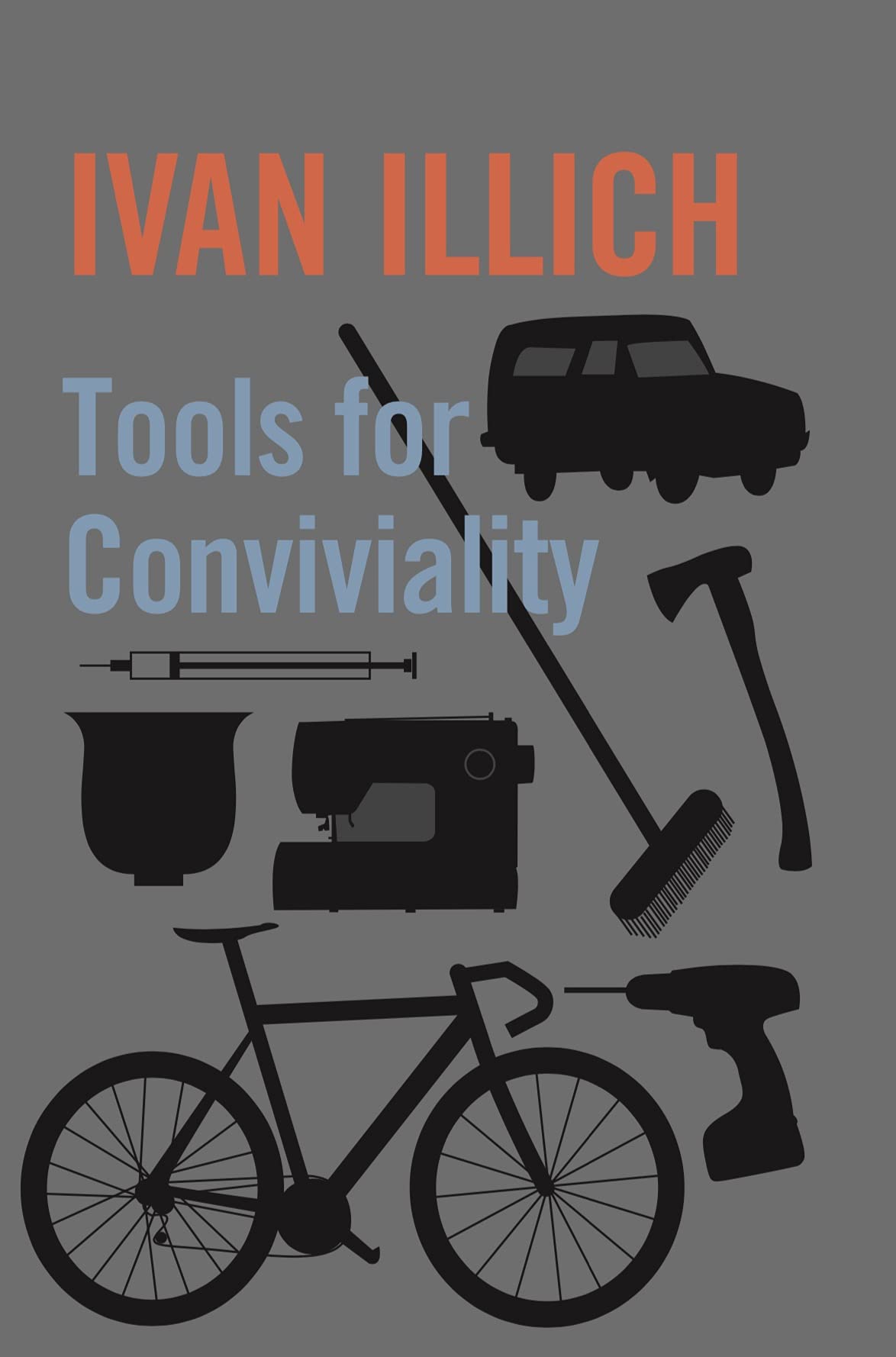
Tools for conviviality
Ivan Illich
As the power of machines increases, the role of persons more and more decreases to that of mere consumers. [...] I choose the term "conviviality" to designate the opposite of industrial productivity. I intend it to mean autonomous and creative intercourse among persons, and the intercourse of persons with their environment; and this in contrast with the conditioned response of persons to the demands made upon them by others.
School curricula or marriage laws are no less purposely shaped social devices than road networks. Tools are intrinsic to social relationships. An individual relates himself in action to his society through the use of tools that he actively masters, or by which he is passively acted upon. To the degree that he masters his tools, he can invest the world with his meaning; to the degree that he is mastered by his tools, the shape of the tool determines his own self-image. [...] Industrial tools deny this possibility to those who use them and they allow their designers to determine the meaning and expectations of others.
Tools foster conviviality to the extent to which they can be easily used, by anybody, as often or as seldom as desired, for the accomplishment of a purpose chosen by the user. The use of such tools by one person does not restrain another from using them equally. They do not require previous certification of the user. Their existence does not impose any obligation to use them. They allow the user to express his meaning in action.
The principal source of injustice in our epoch is political approval for the existence of tools that by their very nature restrict to a very few the liberty to use them in an autonomous way.
People have a native capacity for healing, consoling, moving, learning, building their houses, and burying their dead. Each of these capacities meets a need. The means for the satisfaction of these needs are abundant so long as they depend primarily on what people can do for themselves, with only marginal dependence on commodities. [...] These basic satisfactions become scarce when the social environment is transformed in such a manner that basic needs can no longer be met by abundant competence. The establishment of a radical monopoly happens when people give up their native ability to do what they can do for themselves and for each other, in exchange for something "better" that can be done for them only by a major tool.
When centralization and specialization grow beyond a certain point, they require highly programmed operators and clients. More of what each man must know is due to what another man has designed and has the power to force on him.
Movements that seek control over existing institutions give them a new legitimacy, and also render their contradictions more acute. Changes in management are not revolutions.
When ends become subservient to the tools chosen for their sake, the user first feels frustration and finally either abstains from their use or goes mad. [...] When maddening behaviour becomes the standard of a society, people learn to compete for the right to engage in it. Envy blinds people and makes them compete for addiction.
The institutionalisation of knowledge leads to a more general and degrading delusion. It makes people dependent on having their knowledge produced for them.
The world does not contain any information. It is as it is. Information about it is created in the organism through its interaction with the world.
It is almost impossible to insist strongly enough on the distinction between means and ends in an epoch in which purposes have been reduced to operations, in an epoch in which people "raise" consciousness, movements pretend to provide "liberation," languages rather than persons are said to "speak," and politicians "make" revolutions.